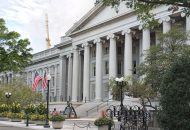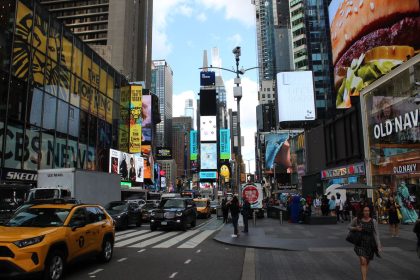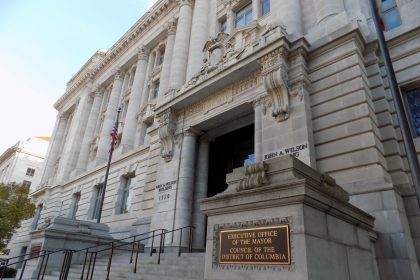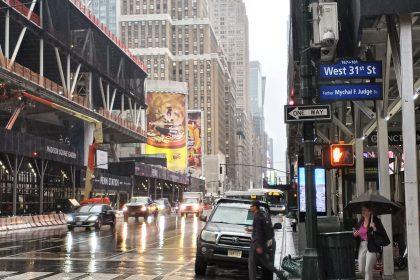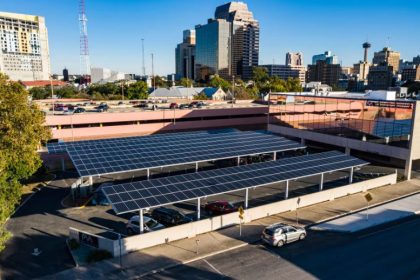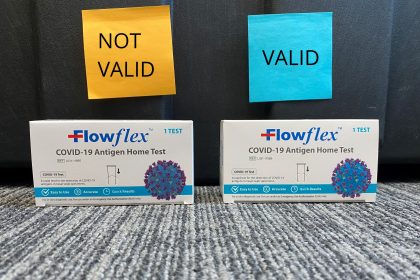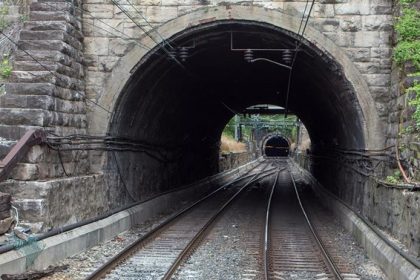Chicago Air is Dirtier This July Than Smog-Choked Los Angeles

CHICAGO — After missing out on cleaner air during the coronavirus lockdown, the Chicago area just suffered its longest streak of high-pollution days in more than a decade.
Nine consecutive days of bad air swept through the region amid an emerging scientific link between exposure to pollution and COVID-19 death rates. Low-income, predominantly Black and Latino communities are being hit the hardest.
Air quality has been so poor, the entire Chicago area ended up dirtier than notoriously smog-choked Los Angeles during the beginning of the month, according to a Chicago Tribune review of federal data.
Satellites and land-based monitors tracked how unusually hot, sunny weather in the Midwest baked exhaust from automobile tailpipes, diesel engines and factory smokestacks into smog, also known as ground-level ozone.
Independence Day celebrations added to the problem. Stagnant air prevented soot pollution released by fireworks from dispersing, increasing the likelihood that even healthy people had trouble breathing during the holiday weekend.
Lake Michigan also played a role. Smog-forming pollutants — scientists call them precursors — collect over the lake on sunny days, then drift inland during late afternoons.
“If you have precursors cooking up in this sunny zone and then the lake breeze pushes all of that air back toward the shore, it can make for a really crummy day,” said Patricia Cleary, a University of Wisconsin at Eau Claire chemist involved in a federal study of smog sources and trends in Lake Michigan states.
The lake effect often leaves vacation spots like Door County, Wisconsin, and Saugutuck, Michigan, with more high-smog days than Chicago. But not so far this year.
Swells of lung-damaging, life-shortening pollution prompted the U.S. Environmental Protection Agency to classify seven of the first nine days of July as “unhealthy for sensitive groups” in Chicago and its suburbs, meaning children, older adults and people with lung or heart disease should limit outdoor activity.
Both days after the Fourth of July fell into the “unhealthy” category. Everyone is advised to cut back on being outside on those days.
Chronically dirty air is one of the consequences of extreme weather triggered by climate change.
“We are seeing an ever increasing number of warmer days where it is more likely to have larger ozone production and other air quality issues,” said Donald Wuebbles, an atmospheric sciences professor at the University of Illinois. “While emissions in some ways may be decreasing somewhat, the tendency of the changing climate is to produce more days where air quality can be an issue.”
The Trump administration agrees, on paper at least. Its 2018 National Climate Assessment concluded that “Midwestern populations are already experiencing adverse health impacts from climate change, and these impacts are expected to worsen in the future.”
At the same time, President Donald Trump has spent the past three years weakening clean air regulations. His political appointees have repeatedly brushed aside recommendations from independent scientists finding smog and soot are more dangerous than previously thought.
In April, for instance, the Trump EPA declined to tighten national standards for soot, siding with Republican lawmakers and industry lobbyists who for decades have fought regulations requiring progressively less pollution from vehicles, power plants, factories and oil refineries.
The administration also overruled career EPA staff and trimmed the number of counties in the Chicago area required to adopt smog-fighting measures such as more stringent limits on industrial pollution, tailpipe-emissions monitoring and vapor controls on gasoline pumps.
“Obviously Illinois isn’t doing enough to reduce ozone smog levels,” said Brian Urbaszewski, director of environmental health policy at the Respiratory Health Association of Chicago. “The problem persists year after year, and people’s lungs suffer the effects.”
Urbaszewski’s organization and other environmental groups are fighting back with lawsuits and political pressure. They often are joined by lawyers for Democratic-led city and state governments, including Chicago and Illinois.
One such legal challenge prompted a federal appeals court Friday to order the Trump EPA to reconsider its 2018 decision absolving all or part of 16 counties from joining their urban neighbors in fighting smog.
Among those affected are northwest suburban McHenry County, Porter County, Ind., Ottawa County, Mich., and ten Lake Michigan counties in Wisconsin. Smog concentrations in the counties either exceed federal standards or contribute to violations in downwind communities.
Documents in government files show Trump appointees dropped McHenry from its latest list of smog violators after a letter and phone call from Alec Messina, an industry lobbyist who at the time served as director of the Illinois EPA under then-Republican Gov. Bruce Rauner.
Three judges on the U.S. Court of Appeals for the District of Columbia noted the Trump EPA failed to defend why it relaxed smog-fighting requirements in McHenry. Monitoring data shows air pollution in the county is on the rise.
“This incongruity … renders EPA’s explanation suspect,” the court concluded.
Under provisions of the federal Clean Air Act, more stringent regulation of industrial emissions will almost certainly be required in the Chicago area if current trends continue.
“It’s complicated, but the weather has been very conducive this year to smog,” said Zac Adelman, executive director of the Lake Michigan Air Directors Consortium, a group of state officials from Illinois, Indiana, Michigan, Ohio, Minnesota and Wisconsin.
Researchers eventually will be able to identify sources of recent smog and soot pollution by analyzing the chemical composition of particles collected inside filter-based monitoring equipment.
Similar to what occurred during the lockdown, likely culprits include buildings, factories and diesel engines that burn coal, oil or natural gas. Diesel emissions in particular remain a problem in Chicago, a racially segregated freight hub where rail yards, warehouses and intermodal facilities are concentrated in low-income, predominantly Black and Latino neighborhoods.
Those areas also are suffering disproportionately from the COVID-19 disease. A team of Harvard data scientists recently determined that a person living for decades in a county with high levels of soot is 8% more likely to die from the coronavirus than someone in an area with one microgram less of the pollution per cubic meter of air.
The Tribune reported in May that average daily soot concentrations in the Chicago area declined by only 1% the previous month compared with April 2019. By contrast, soot levels in New York City dropped 28%; Denver, Detroit, Los Angeles and St. Louis each saw a 16% decline in the tiny particles of pollution during the first full month of shelter-in-place orders.
Conditions worsened as summer arrived. Chicago recorded the most “unhealthy” days in June since 2012, the Tribune analysis found.
With more hot, sunny weather in the forecast, air quality likely will remain poor for the rest of July.
———
©2020 Chicago Tribune
Distributed by Tribune Content Agency, LLC.











